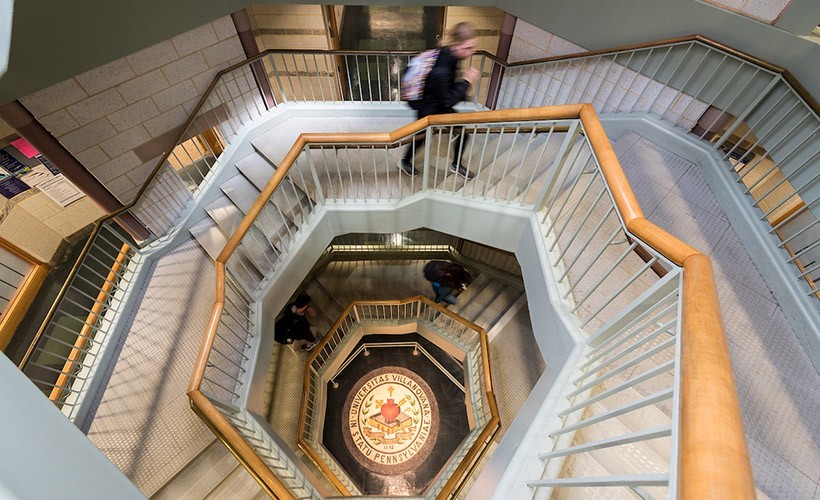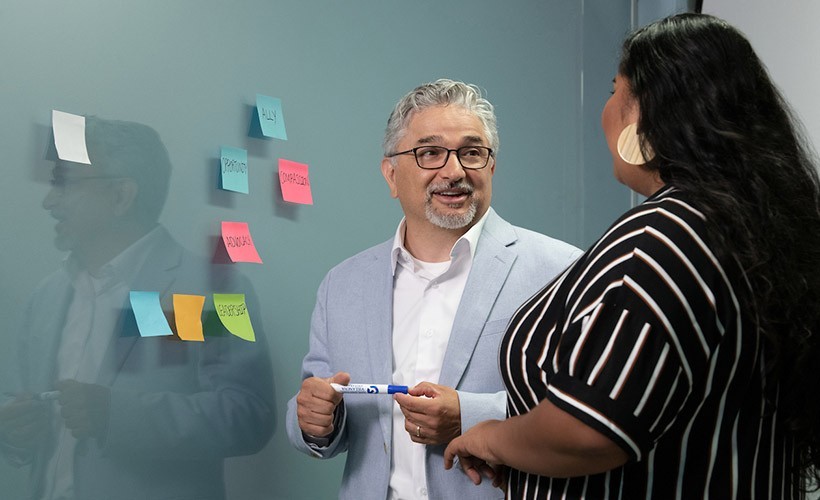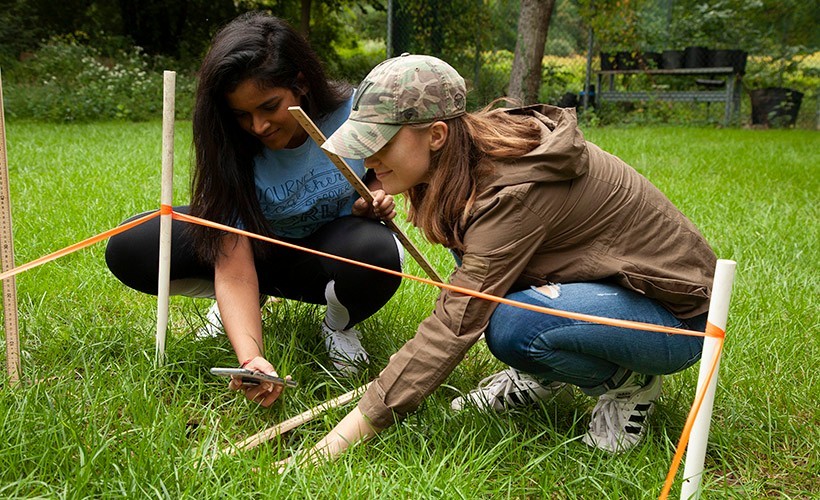FOUNDING STATEMENT OF PURPOSE
The mission of the Department of Humanities is to seek wisdom for personal and cultural renewal through the pursuit of an integrated, interdisciplinary approach to human questions. At the foundation of the Department’s inquiry into the humanum lies the conviction that reason will not be satisfied with fragmentary bits of information, but aspires to a view of the whole, and an insight into the foundation of things. This conviction is joined by a second: that the light of faith neither compromises nor substitutes for rigorous intellectual reflection, but informs the work of reason even as it provokes constant wonder and promotes deeper inquiry.
Of all the questions facing our age, the question of the human person is the most pressing. On the one hand, the integrity of the human person has been called into question by a variety of movements that reduce human beings to, for instance, biological motivations, economic incentives, historical trends, or inescapable networks of power. This confusion about what it means to be a human being comes at a time in which technology gives us unprecedented power to manipulate the human person.
On the other hand, as the human person faces these threats, our capacity to understand and respond in an adequate manner is hampered by other cultural currents: the reduction of wisdom to knowledge and knowledge to information; the impoverishment of the imagination; the trivialization of the deepest questions regarding the meaning of things; the privatization of faith; and the loss of a living admiration for the great deeds and thoughts of the men and women of our tradition.
The Department, moreover, approaches its lines of inquiry in dialogue with contemporary cultural reflection and in the light of current problems surrounding the nature and meaning of the person. At the same time, it believes that an adequate engagement with these problems must draw on the resources of the great intellectual and spiritual traditions of the past, and of the Catholic tradition in particular.
The Formation of the Person
Such an approach views education, not just as the acquisition of skills, but as the formation of the person. So conceived, it entails several specific aims: to introduce students in a living way to the great insights and inspirations of the past that have formed the culture of the present; to communicate habits of reflection, of disciplined critical thinking, and of wonder, as well as to develop skill in writing and speaking articulately; to foster a genuine sense of community among faculty and students by uniting them in the pursuit of a common good; and to help students confront for themselves perennial questions concerning the meaning of life and the order of things, questions that take on a particular form and a particular urgency in the present age.
While the contemporary academy tends to promote high degrees of specialization among scholars, the Department of Humanities believes that only an approach to inquiry that attends to the person as a whole with the lofty goal of integral human wisdom will offer a response to the problems facing us today.
Only such an approach will be able to furnish an education that students deserve. In short, the Department desires to offer students a genuinely liberal education: one that liberates them by promoting their full human flourishing.
Consequently, the Department seeks to develop a new sense of education that recovers a classical understanding of the ordered integration of the disciplines, but makes the complex mystery of the human being and the meaning and destiny of the person the guiding principle of that integration.
For this reason, philosophy and theology represent the Department’s founding disciplines. We seek, however, to restore their proper ambitions. Philosophy and theology are not two disciplines among the others. Rather, they are the wellsprings of all our particular efforts to reach for a unified understanding of the order of things insofar as both faith and reason long for this.



